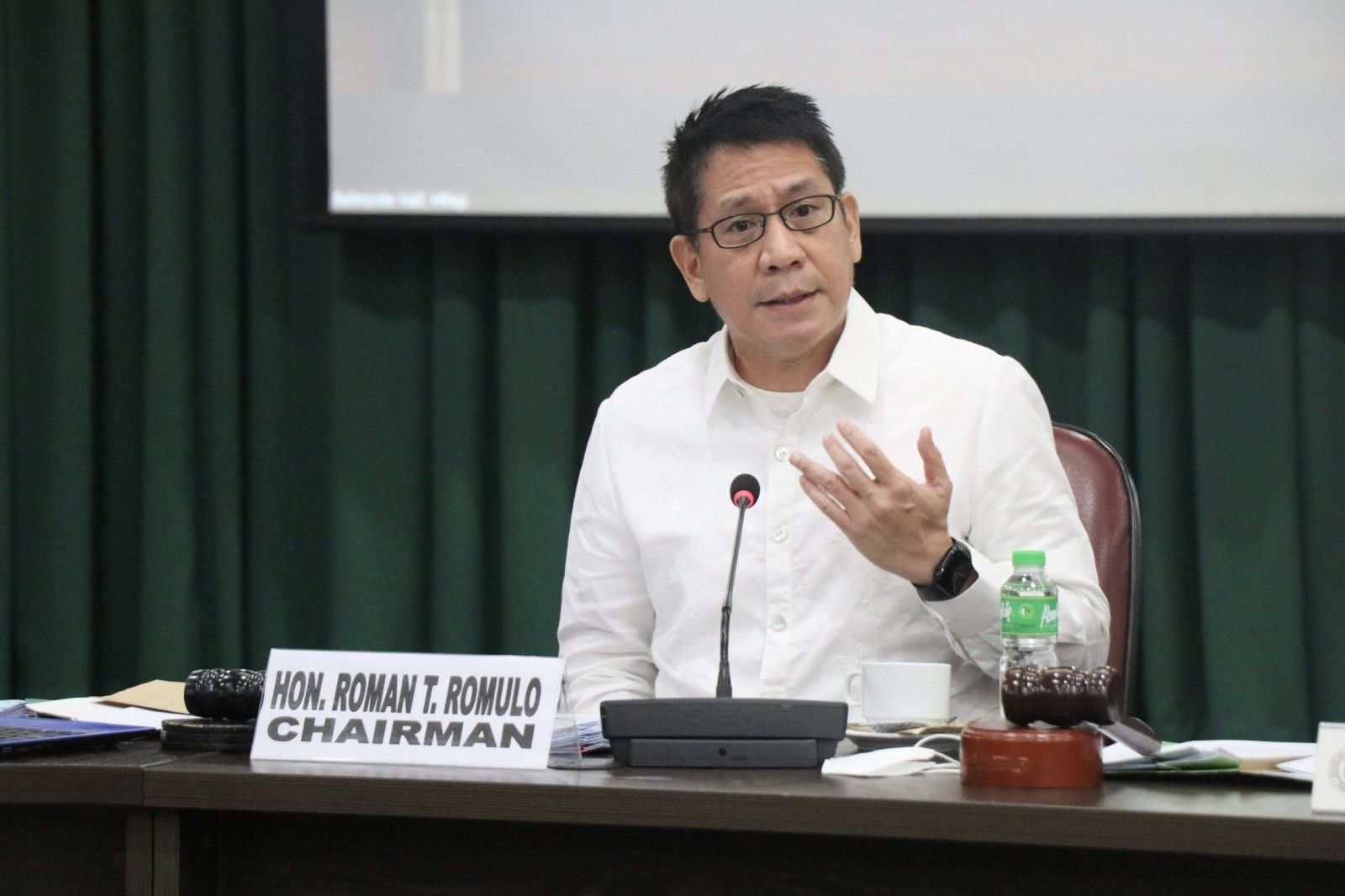House panel: 10 years of basic education still aligns with global standards

MANILA, Philippines — The chairperson of the House basic education committee assured representatives of private schools on Monday that going back to ten years of compulsory basic education will still keep the Philippines aligned with global standards.
Speaking before private school associations, Rep. Roman Romulo (Pasig City) said that the proposed K+10+2 bill will not affect the country’s global competitiveness in education as several countries, like Japan and Australia, implement only nine or ten years of mandatory basic education.
This was in response to concerns from a group of small-to-medium private schools about whether the proposed measure would “jeopardize the alignment of the K to 12 [program] with global standards.”
“Japan, Korea, Australia — all of them implement a K to 9 or K to 10 basic education, and plus two is optional and only if you go to college (...) So im wondering what global competitiveness are we referring to?” Romulo said in a mix of English and Filipino.
"That’s the way it is in other jurisdictions. What they do is they offer two tracks. When you graduate from K to 9 or K to 10, you go to a tech-voc track or a university track,” the basic education panel chair said during the technical working group meeting on the proposed K+10+2 bill.
Representatives from the Federation of Associations of Private Schools & Administrators (FAPSA) said during the meeting that it is premature to tweak the K to 12 program as "ten years is not enough to conclude that it is a failure."
The group of small-to-medium private schools also said that based on its research, shifting to K+10+2 could affect the country's alignment with international standards and "hamper the seamless flow of curriculum and create potential learning gaps."
As a response, Romulo said that several other countries already implement a system similar to the one proposed by the K+10+2 bill filed by Deputy Speaker Gloria Macapagal-Arroyo wherein two additional years would only be required for students who will take up post-secondary education.
"The impression before was that globally, K to 12 was compulsory for all. But apparently, it's only compulsory in some countries if you take the university track," Romulo said in a phone call with Philstar.com.
RELATED: Explainer: How the 'K+10+2' system may not address root issues, challenges that hounded K to 12
Where did the 12 years as a global standard come from?
The Philippines officially implemented the K to 12 education system, which includes 12 years of basic education, in 2013. Prior to that, the country had a ten-year basic education cycle, which comprised six years of primary education (grades 1 to 6) and four years of secondary education (high school).
Proponents and defenders of the controversial K to 12 program often touted the addition of two more years as a necessary step toward aligning with international standards and to better prepare students for higher education and the global job market.
Lawmakers who previously deliberated on the current K to 12 program may not have been informed about the alternate education pathways besides K to 12 at the time, Romulo said.
“Even at the time, the understanding I suppose relayed to policymakers was that it was just K to 12 only. It wasn’t said before that if you were going to university, you really have to take up K to 12,” Romulo told Philstar.com.
The difference is that in other countries, the technical vocation and other career pathways after basic education is “already developed.”
“So for them, after K to 10, that was a possible route, similar to the programs offered by TESDA here,” he explained.
According to the Official Gazette’s page for K to 12, the Philippines had been “the last country in Asia and one of only three countries worldwide with a ten-year pre-university cycle (Angola and Djibouti are the other two).”
Latest World Bank data from 266 countries show that most countries offer an average of ten years of compulsory basic education.
The Philippines is one of just 15 countries on the list that offer 13 years of mandatory basic education.
Not just years of schooling
Rep. Raoul Manuel (Kabataan Partylist) stressed during the committee hearing that it is “limiting” to measure global competitiveness based solely on the number of years of compulsory basic education.
Citing data from EDCOM 2, Manuel said that at least 30 countries have 12 years of compulsory basic education; while 21 countries have 11 years of compulsory basic education. Meanwhile, at least 38 countries only have ten years for the basic education cycle.
“Across the globe, there are no majority years that’s treated as the standard,” Manuel said.
Since the start of the implementation of K to 12 in 2013, the Department of Education has yet to complete and release to the public a comprehensive review of the program, which several student and teacher groups have said is long overdue.
A review of the K to 12 program is mandated by the same law that created it or Republic Act 10533.
DepEd said this year it has formed a task force to review the senior high school program or the implementation of grades 11 and 12.
- Latest
- Trending

































